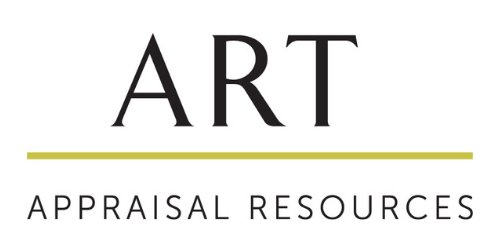The Importance of Contemporary Art Appraisals
/When Might You Need a Contemporary Art Appraisal?
Art Acquisitions
Art collectors, museums, galleries, and private individuals interested in purchasing contemporary Paintings, Sculpture, Photography, or Fine Art Prints might seek an appraisal to ensure they make an informed investment. An appraisal performed by a certified art appraiser helps the purchaser gauge the artwork's fair market value and authenticity before finalizing the acquisition. Often, this is an important financial decision collectors make pre-purchase to help with pricing which often saves collectors from paying too much.
Art Sales
When contemporary art owners decide to sell their pieces, they may request an appraisal to establish a realistic asking price. Auction houses, galleries, and art dealers often require a certified art appraisal to estimate and reserve artwork sales prices. The appraisal often serves as an important document which details important aspects of the items condition, medium and provenance, as well as exhibition history if known.
Insurance Coverage
Artwork, especially valuable contemporary pieces, can be a significant asset that requires proper insurance coverage. Insurance companies typically ask for a current appraisal to determine the appropriate coverage and ensure adequate compensation in the case of loss or damage.
In legal disputes, such as art ownership conflicts or divorce settlements, an appraisal can provide an unbiased assessment of the artwork's value and authenticity.
Estate Planning and Taxation
In estate planning, a contemporary art appraisal helps determine the fair market value of the artworks to distribute assets among heirs or donate them to charitable organizations. Additionally, when art is donated to a museum or non-profit institution, an appraisal is essential for tax purposes and to comply with IRS regulations.
Loan Collateral
Art collectors or investors who use their contemporary art as collateral for loans may require an appraisal to determine its value as security.
Art Conservation and Restoration
Appraisals can also be helpful before conserving or restoring a valuable contemporary artwork. The appraisal helps establish the artwork's condition and value, guiding conservation decisions. Art historians and researchers may seek appraisals to document contemporary artwork's value and historical significance as part of their scholarly work.
Art Investment and Portfolio Management
Investors or art funds focusing on contemporary art may utilize appraisals to assess the performance of their art portfolios and make strategic decisions.
How Does a Contemporary Art Appraisal Work
The process begins with finding a professional art appraiser specializing in contemporary art. Choosing a qualified and experienced appraiser with an understanding and background of the specific genre and market trends associated with the artwork in question is crucial.
The appraiser will then gather essential information about the contemporary artwork, which may include detailed photography of the artwork, provenance or ownership history of the artwork, information about the artist, and any relevant documentation or certificates.
The appraiser will conduct an in-person examination of the artwork, inspecting it for physical condition, quality, and any signs of damage or restoration. They will also look for specific characteristics that may influence its value, such as the medium, size, complexity, and rarity.
Extensive research is a vital part of the appraisal process. The appraiser will study recent sales and / or retail asking prices of comparable contemporary artworks by the same artist or within the same genre. They will also consider market trends, demand for the artist's work, and how the artwork fits into the current art market landscape.
Formulating the Appraisal Report
The appraiser will prepare a comprehensive appraisal report based on the gathered information and analysis. The report will include a detailed description of the artwork, its condition, provenance, and the methodology used to determine its value. It will also state the appraiser's conclusions regarding the artwork's fair market value, replacement value, or other relevant values, depending on the purpose of the appraisal.
Finding An Art Appraiser
Value matters, and it is important to work with a Qualified Art Appraiser with significant experience and education appraising the type of property you are having appraised. The International Society of Appraisers is the largest organization of personal property appraisers and requires the highest level of education, testing, and training within the appraisal profession. They are recognized by the Appraisal Foundation of America and the IRS requirements for a Qualified Appraiser. Shelley Hall is a Certified Member of the International Society of Appraisers, the highest level of accreditation. Her experience includes working professionally in the art business since 1994 and appraising since 2007.
To get started with a contemporary art appraisal, contact us today!
